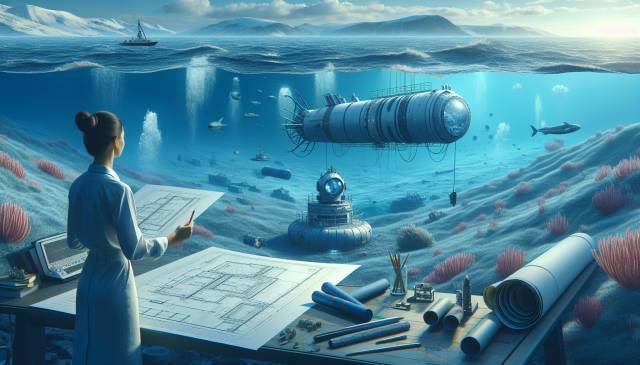
Introduction to Ocean Engineering
Ocean engineering is a fascinating interdisciplinary field that combines principles from various engineering disciplines, including civil, mechanical, and electrical engineering, to address challenges related to the oceans and marine environments. With the worldâs oceans covering over 70% of the Earth's surface, the opportunities for innovation and sustainable development in this field are vast.
Why Ocean Engineering Matters
As global populations grow and the demand for resources increases, ocean engineering plays a crucial role in:
- Resource Exploration: Locating and utilizing marine resources such as oil, gas, and minerals.
- Environmental Protection: Developing technologies to monitor and protect marine ecosystems.
- Transportation: Designing ships and marine structures for efficient travel and transport.
- Renewable Energy: Harnessing ocean energy from tides, waves, and thermal gradients.
Core Areas of Study in Ocean Engineering
Ocean engineering encompasses various sub-disciplines that are essential for understanding and solving complex ocean-related problems. Key areas of study include:
- Hydrodynamics: The study of fluid motion and its interaction with structures.
- Marine Structures: Design and analysis of structures like offshore platforms and underwater pipelines.
- Oceanography: Understanding ocean systems and their dynamics.
- Subsea Engineering: Technology related to underwater operations and equipment.
Educational Pathways in Ocean Engineering
Pursuing a career in ocean engineering requires a solid educational foundation. Hereâs how to get started:
- Undergraduate Degree: A Bachelorâs degree in ocean engineering, civil engineering, or a related field is essential.
- Internships: Gaining experience through internships in marine research centers or engineering firms.
- Graduate Studies: Pursuing a Master's or Ph.D. can enhance expertise and career prospects.
Recommended Courses
Many institutions offer specialized courses in ocean engineering that can help you build the necessary skills. Here are some recommended courses:
- Introduction to Ocean Engineering
- Marine Hydrodynamics
- Offshore Structures Design
- Marine Renewable Energy
- Environmental Impact Assessment
Career Opportunities in Ocean Engineering
Ocean engineers have diverse career opportunities across various sectors, including:
- Government Agencies: Working on policy development and environmental protection.
- Private Sector: Engaging in design and consulting services for marine projects.
- Research Institutions: Conducting studies and contributing to advancements in marine technology.
Skills Required for Success
To thrive in ocean engineering, aspiring engineers should develop the following skills:
- Analytical Skills: Ability to analyze complex data and engineering challenges.
- Problem-Solving: Crafting innovative solutions to ocean-related issues.
- Technical Proficiency: Familiarity with engineering software and tools.
- Teamwork: Collaborating effectively with multidisciplinary teams.
Conclusion
Ocean engineering is an exciting and impactful field that holds the key to sustainable use of ocean resources and protection of marine environments. By pursuing education in this domain, you can contribute to solving some of the most pressing challenges facing our planet. With the right knowledge, skills, and passion, the depths of the ocean can be explored and understood, paving the way for a better future.
